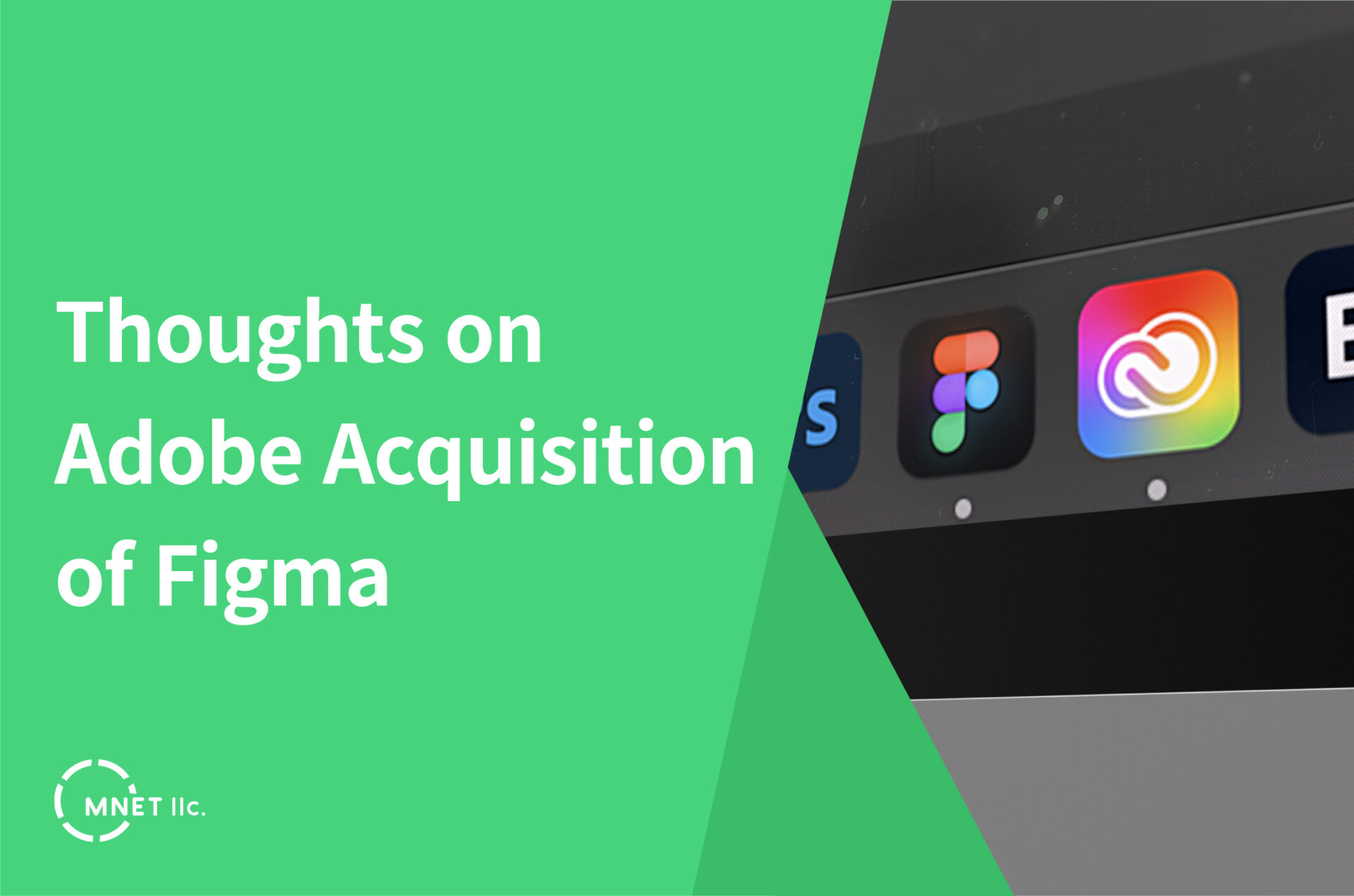
【ワードプレス】問い合わせフォームから届く、ひたすら迷惑なスパムメールを防ぐ為には?



In recent news that has shaken the design world, Adobe, the software giant known for its industry-standard design tools like Photoshop and Illustrator, have their goals set on the acquisition of Figma, a rapidly growing collaborative interface design tool. If this acquisition, it will mark a significant milestone in the design industry and has generated a buzz of excitement and speculation among designers and tech enthusiasts worldwide.
Figma, founded in 2012, has gained a loyal following for its cloud-based design platform, which allows teams to work together in real-time on user interfaces and prototypes. Its user-friendly interface and focus on collaboration have positioned Figma as a direct competitor to Adobe’s design tools, particularly Adobe XD. The acquisition by Adobe is seen as a strategic move to further solidify its dominance in the design software market and capture a larger share of the rapidly growing user experience (UX) and user interface (UI) design space.
For Adobe, the acquisition of Figma presents some clear advantages. By adding Figma’s collaborative design capabilities to its suite of products, Adobe can offer designers a comprehensive set of tools that cater to the evolving needs of modern design teams. This move also allows Adobe to tap into Figma’s user base and expand its reach among designers who value flexibility, efficiency, and seamless collaboration in their workflow.
On the other hand, Figma users are understandably curious and perhaps even apprehensive about what this acquisition could mean for the future of the platform. Will Adobe integrate Figma’s features into its existing products, or will Figma continue to operate as a standalone tool? How will this acquisition impact Figma’s pricing model and development roadmap? These are questions that remain unanswered but are top of mind for many Figma users.
In the world of design software, Adobe and Figma are two major players known for their user-friendly interfaces and rich features. With Adobe having a longstanding dominance in the design industry and Figma rapidly gaining popularity among designers, speculations have arisen about the possibility of Adobe acquiring Figma. However, such an acquisition seems unlikely for several reasons.
First and foremost, both Adobe and Figma are unique in their offerings and target audiences. Adobe’s Creative Cloud suite includes a wide range of design tools such as Photoshop, Illustrator, and InDesign, catering to a diverse set of creative professionals. On the other hand, Figma is known for its collaborative and browser-based design platform, which has gained a strong following among UX/UI designers and design teams. The acquisition of Figma by Adobe might result in a conflict of interest and overlap in their product portfolios, potentially leading to cannibalization of their own products.
Moreover, Figma operates on a subscription-based model similar to Adobe’s Creative Cloud, which generates a significant portion of their revenue. Any acquisition by Adobe would entail integrating Figma’s subscription model into their existing infrastructure, which could be complex and may lead to changes in pricing and user experience. Such a transition could potentially alienate Figma’s existing user base and diminish the unique features that set Figma apart from other design tools.
Additionally, Figma’s rapid growth and innovative approach to design collaboration have positioned it as a strong competitor to Adobe. Figma’s emphasis on real-time collaboration, prototyping, and developer handoff has resonated well with design teams seeking efficient workflows and seamless communication. By acquiring Figma, Adobe may risk diluting the very qualities that make Figma a preferred choice for many designers today.
Lastly, the culture and ethos of Figma as a company play a crucial role in its success. Figma has been lauded for its commitment to user-centric design, transparent communication, and community engagement. An acquisition by a corporate giant like Adobe could potentially alter the dynamic and disrupt the culture that has contributed to Figma’s growth and reputation.
In conclusion, while the idea of Adobe acquiring Figma may seem plausible on the surface due to their respective positions in the design industry, the intricacies of their product offerings, revenue models, competition landscape, and company cultures make it a less feasible scenario. As both Adobe and Figma continue to evolve and innovate in their own capacities, the likelihood of an acquisition remains low, preserving the diversity and healthy competition in the design software market.
Click here to read more about the acquisition.
Whether it’s creating captivating visuals, intuitive user interfaces, or cohesive brand narratives, we can bring your vision to life and set you apart in a competitive market.
At MNET, we aim to fulfill the needs, wants, and desires of our clients by utilizing our expertise in IT, Design, and Marketing. We continue to grow and keep up with the latest technological advancements and design trends in this ever changing world. We cater to all local businesses of all sizes.
If you’re looking for take your brand to the next level, contact us here!
Our Services Include:

ブランコ リカ
デザイナー
セブ工科大学で情報技術学科卒業。2019 年に日本語を勉強するために来日した。 グラフィック デザイナーとして自動車会社に入社し、テクノロジー業界の視野を広げ、グラフィック デザインへの情熱を追求した。 顧客に高品質のサービスを提供するという会社の使命とビジョンに感銘を受け、現在の会社に入社。

【ワードプレス】問い合わせフォームから届く、ひたすら迷惑なスパムメールを防ぐ為には?


長時間作業しても疲れない!?4スタンス理論から見る本当に自分に合ったマウスの選び方!


【Part7】記事取得のカスタマイズが捗る。WP_Queryの使い方。カスタムフィールドの指定編


サステナブルマーケティングとは


対面マーケティングの重要性


AIとグラフィックデザイン: デザイナーは心配すべきか?


Webサイト制作における開発手法


最近のマイブーム(おすすめメディア紹介)


幼稚園でICT活用のメリットを紹介


デジタルヘルスとは?
